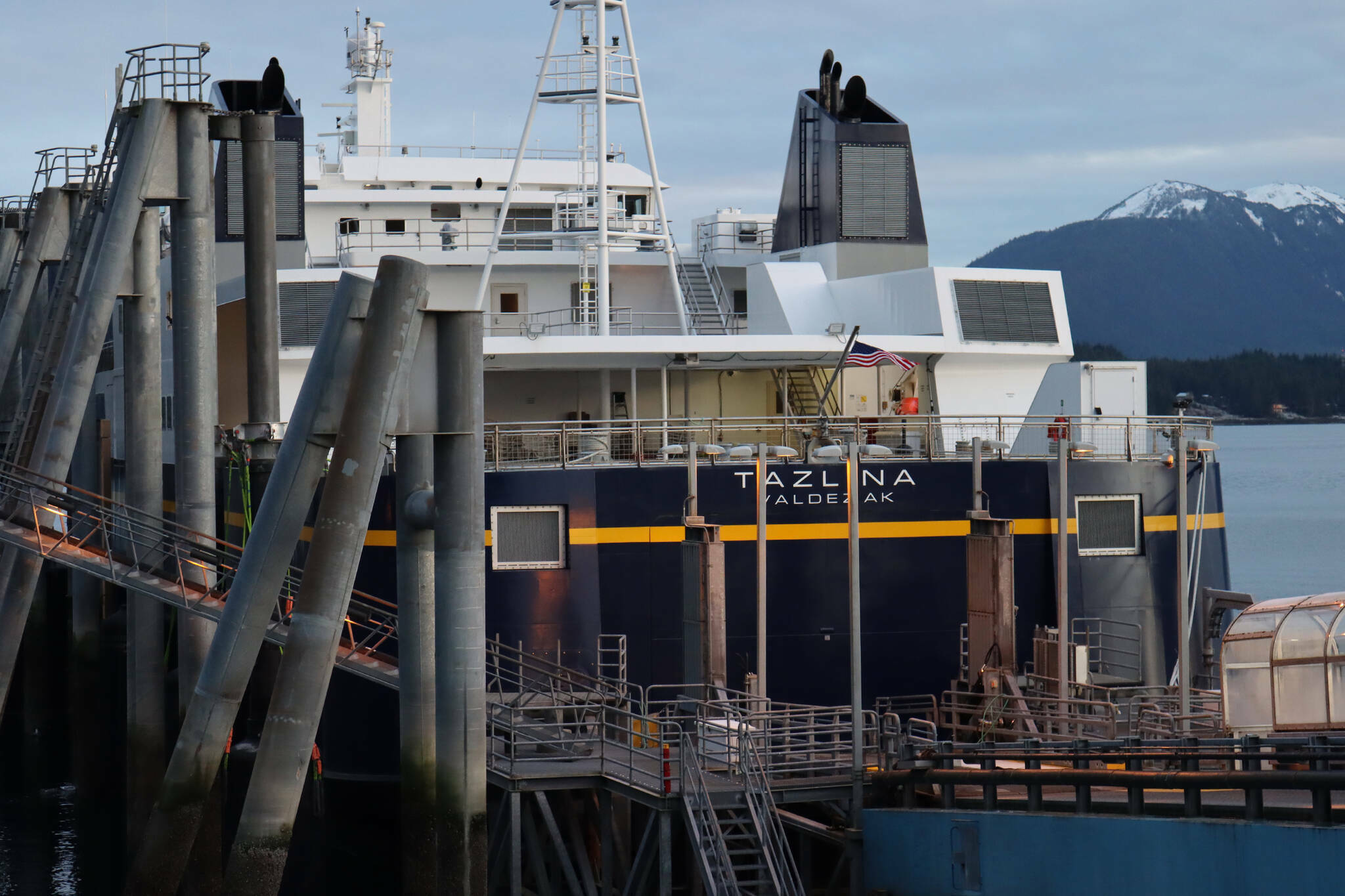A major victory in efforts to upgrade Alaska Marine Highway System vessels and infrastructure was secured this week as the federal government approved the state’s first-ever use of passenger fares as “toll credits” that can be used instead of state funds to secure federal grants awarded for the projects.
A letter sent Tuesday by the Federal Highway Administration’s Alaska Division declares the state’s request “is in substantial conformance with” the requirements to use toll credits as matching funds. Gov. Mike Dunleavy initially proposed such use of state ferry revenues in February of 2023, and they were included in his proposed budget for the coming year as well as the statewide transportation plan for the next four years despite the ongoing review by the federal government.
Among the projects the toll credits will help fund are replacing the aging Tustumena ferry that serves Southwest and Southcentral Alaska with AMHS’ first diesel-electric hybrid ferry, repairs and upgrades at the Auke Bay and other ferry terminals, and work on four other existing AMHS vessels.
“The effort is the culmination of roughly a year and a half of work within the department, the legislature, our congressional delegation, and our federal partners,” Ryan Anderson, commissioner of the Alaska Department of Transportation and Public Facilities, said in a prepared statement Thursday. “We thank everyone who worked on this proposal. We appreciate FHWA for its collaborative efforts, and commitment to advancing Alaska’s transportation infrastructure. This approval reinforces our shared vision of a well-connected, resilient, and prosperous Alaska.”
States can earn toll credits “when a public, quasi-public, or private agency uses toll revenues to build, improve, or maintain highways, bridges, or tunnels (or…a ferry that serves as a link on a highway) that serve the public purpose of interstate commerce,” according to the Federal Highway Administration. Ferry systems in other states have qualified for toll credits — such as one in Washington that is a mainstay of the Seattle-area transportation hub — but some officials in Alaska questioned if AMHS would be eligible due to mainline routes being used largely for tourism.
About $20 million of ferry toll funds are used to secure more than $100 million for projects included in the Statewide Transportation Improvement Plan (STIP) for 2024-2027, which the federal government approved in late March after rejecting it in mid-February due to a long list of cited deficiencies. But the approved plan did not include approval of AMHS revenues as toll funds, which occurred after further communication between state and federal officials.
Dunleavy’s reluctance to use state funds to secure the federal grants was heavily criticized in following months by some officials, including U.S. Sen. Lisa Murkowski who repeatedly implored him and other state lawmakers to provide proper matching funds. However, while visiting the Alaska State Capitol in February to deliver her annual speech to the Legislature, she called the use of toll credits “creative” and said it didn’t appear they were raising any red flags with federal transportation officials she had talked to.
• Contact Mark Sabbatini at mark.sabbatini@juneauempire.com or (907) 957-2306.

